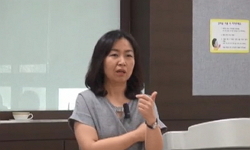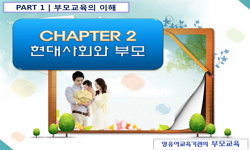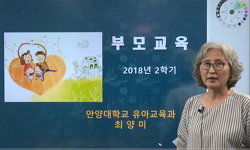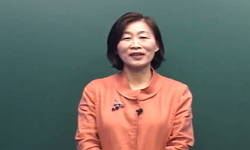The purpose of this study is to apply STEP program to parents` of young children and verify educational effects of the study. The research questions are following. First, what effects does STEP of young children`s parents have on fostering attitude? S...
http://chineseinput.net/에서 pinyin(병음)방식으로 중국어를 변환할 수 있습니다.
변환된 중국어를 복사하여 사용하시면 됩니다.
- 中文 을 입력하시려면 zhongwen을 입력하시고 space를누르시면됩니다.
- 北京 을 입력하시려면 beijing을 입력하시고 space를 누르시면 됩니다.

유아기 자녀의 부모를 위한 STEP 부모교육 프로그램의 효과에 관한 연구 = A Study on the Effects of the Systematic Training of Effective Parenting of Young Children`s Parents
한글로보기https://www.riss.kr/link?id=A100824311
- 저자
- 발행기관
- 학술지명
- 권호사항
-
발행연도
2009
-
작성언어
-
- 주제어
-
KDC
300
-
등재정보
KCI등재
-
자료형태
학술저널
-
수록면
31-56(26쪽)
- 제공처
-
0
상세조회 -
0
다운로드
부가정보
다국어 초록 (Multilingual Abstract)
The purpose of this study is to apply STEP program to parents` of young children and verify educational effects of the study. The research questions are following. First, what effects does STEP of young children`s parents have on fostering attitude? Second, what effects does STEP of young children`s parents have on mutual understanding techniques between parents and children? Third, what effects does STEP of young children`s parents have on parents` efficacy? This research selected 37 persons of parents from N Kindergarten in Nam yang ju si, Kyung gi do. Participants were classified into experimental group of 18 and control group of 19. Fostering attitude, technique of parent-children mutual understanding, parents` efficacy were preliminarily inspected before the study. This study was held from June 4th of 2009 to July 23rd of 2009. Experimental group proceeded parent education for 120 minutes at a time, once in a week for total of 8 weeks. Control group conveyed the parent education through announcement letter. The test of experimental group and control group was operated during the last 8th week of the research using the same method of measurement. In order to understand the effect of STEP of Young Children`s Parents, SPSS 15.0 for Windows was used for data analysis to verify t. The following is a summarized research result on its application effect of STEP of Young Children`s Parents. First, the effects on how STEP program influences parents` fostering attitude were examined. In preliminary examination, both the experimental and control groups were confirmed as homogeneity group because there were no distinct differences under parents` fostering attitude between those two groups. However, after conducting an experiment, certain differences were seen. While the experimental group had increased open (t = -3.15, p<.01) and affection (t = -2.46 p<.0.5) behavior, regimental (t = -3.15, p<.01), and negative behavior (t = -2.46 p<.05) showed an evident decline. These results had shown how this program changes parents` open and affection behaviors, and how regimental and negative attitudes can be reduced. Second, when examining the effects of STEP program which influences parent-children mutual understanding techniques, both the experimental and control group were considered as homogeneity groups due to ambiguous differences on parent-children communication skills. However, after the experiment certain differences were observed. Parent-children communication skills of the experimental group, against the control group, had increased (t = 3.65, p<.001) which indicates that the STEP program improves the communication skills between the parents and children. Third, in preliminary experiment, both the experimental and control groups had not shown any certain differences on parents` efficacy which leaves them as a homogeneity group, but there were some recognizable differences after the observation. Compared to the control group, while the parents` efficacy (t = 2.36 p<.05) and the interests about the parenting (t = 2.31, p<.05) of the experimental group had improved, the anxiety and uneasiness as a parent were not showing a huge difference among those two groups.
동일학술지(권/호) 다른 논문
-
어린이집 영어교육에 대한 실태 및 시설장, 교사, 어머니의 영어교육에 대한 인식
- 열린부모교육학회
- 이정희 ( Jeung Hee Lee )
- 2009
- KCI등재
-
책읽기에 관한 어머니 신념과 가정에서의 책읽어주기 방법과의 관계
- 열린부모교육학회
- 이윤숙 ( Yeun Sook Lee )
- 2009
- KCI등재
-
유아의 기질과 교사- 유아관계가 또래유능성에 미치는 영향
- 열린부모교육학회
- 황윤세 ( Yoon Se Hwang )
- 2009
- KCI등재
-
영유아 부모교육프로그램의 연구동향 분석: 2000년∼2009년
- 열린부모교육학회
- 이완희 ( Yoan Hee Lee )
- 2009
- KCI등재




 KISS
KISS






